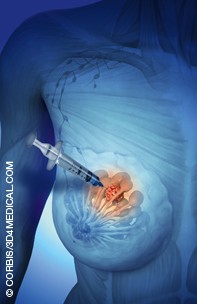Peer Reviewed
Feature Article Oncology
Early breast cancer: new developments in diagnosis and treatment
Abstract
Early (curable) breast cancer is the focus of this first article in a three-part series discussing important advances in the diagnosis and treatment of breast cancer. Subsequent articles will cover locally advanced and metastatic breast cancer, updated diagnostic tools, psychosocial care and risk factor modification.
Key Points
- The aim of treatment for early breast cancer is cure.
- Surgery is the mainstay of treatment, and adjuvant therapy may be added to reduce the risk of recurrence.
- Completion axillary dissection may not be required in all patients with one or two positive sentinel nodes but investigations are ongoing.
- Using intensity-modulated radiation therapy in whole breast radiotherapy improves the accuracy and homogeneity of radiation dose delivery.
- Molecular genetic profiling of breast cancer helps determine treatment, particularly chemotherapy in addition to hormone therapy.
- Trastuzumab, a monoclonal antibody to the HER2 receptor, is effective in women with HER2-positive breast cancer.
- Tolerance of treatment, particularly chemotherapy, is improving.
Purchase the PDF version of this article
Already a subscriber? Login here.

